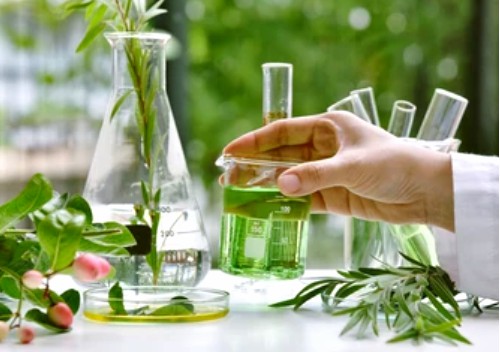Analysis of Insecticide Bioactivity
Insecticides are crucial in modern agriculture by protecting crops from pest infestations. To ensure their efficacy, it is imperative to assess the bioactivity of insecticides, which involves evaluating their potency, mode of action, and potential environmental impact.
Lifeasible is dedicated to plant protection and aims to provide comprehensive and effective solutions for developing and applying insecticidal proteins. We offer various advanced analytical tools that play a crucial role in insecticidal bioactivity analysis.

Application of insecticide bioactivity analysis
- Pest management. One of the primary applications of insecticide bioactivity analysis is pest management. It assists in the selection of appropriate insecticides for controlling targeted pests. By evaluating insecticide bioactivity against specific pest species, we can help researchers identify effective compounds that minimize harm to beneficial organisms and the environment. Such analyses enable the development of targeted, efficient, and environmentally friendly pest control strategies.
- Pesticide development. Insecticide bioactivity analysis plays a pivotal role in pesticide development. It aids in screening chemical compounds and formulations to identify potential candidates with high bioactivity against targeted pests. These analyses provide valuable insights into insecticide potency, selectivity, and mode of action, facilitating formulation and dosage optimization.
Importance of insecticide bioactivity analysis
- Efficacy and selectivity. Assessing the bioactivity of insecticides ensures their efficacy against target pests. Bioactivity analysis aids in identifying insecticides with selectivity towards target pests, reducing non-target effects, and preserving beneficial organisms.
- Resistance management. Bioactivity analysis helps monitor and detect the development of resistance in pest populations, which can help mitigating resistance and ensure the long-term effectiveness of insecticides.
- Environmental protection. Protecting the environment is a paramount consideration in pesticide use. Analyzing insecticide bioactivity allows researchers to understand their potential impact on non-target organisms and ecosystems, which can help researchers use bioactive insecticides judiciously.
What do we offer?
- Laboratory bioassays. Laboratory bioassays involve exposing target pests to different insecticide concentrations and measuring their response. We conduct these bioassays, including contact toxicity tests, oral toxicity tests, and topical application tests.
- Molecular methods. Molecular methods can be used to investigate insecticide modes of action and understand their interactions with target pests. We commonly utilize gene expression analysis, receptor binding, and enzyme activity assays. These techniques provide insights into the specific molecular targets of insecticides, facilitating the development of new compounds and understanding resistance mechanisms.
- Residue analysis. Residue analysis involves detecting and quantifying insecticide residues in various environmental samples. We utilize gas chromatography and liquid chromatography coupled with mass spectrometry to detect and quantify insecticide residues.
Advantages of our services

Lifeasible is an industry leader in biopesticide development. We aim to provide effective solutions for plant protection. If you are interested in us, please feel free to contact us.
For research or industrial raw materials, not for personal medical use!

